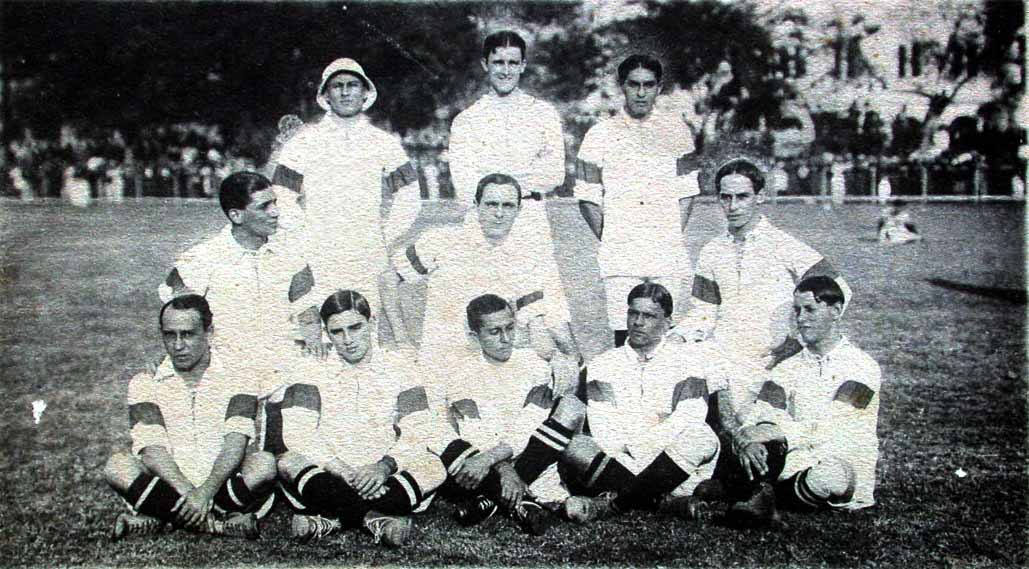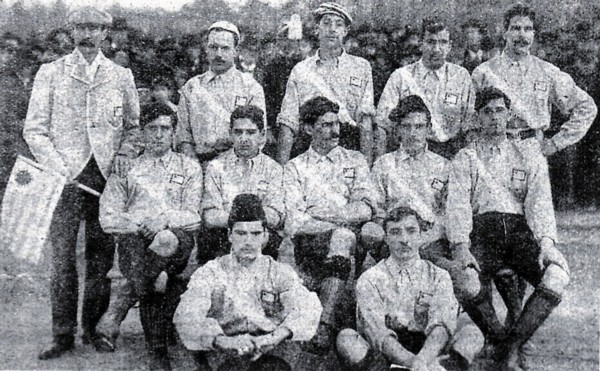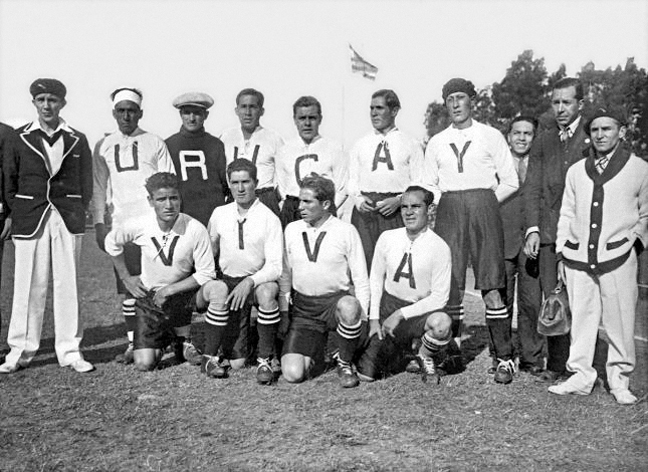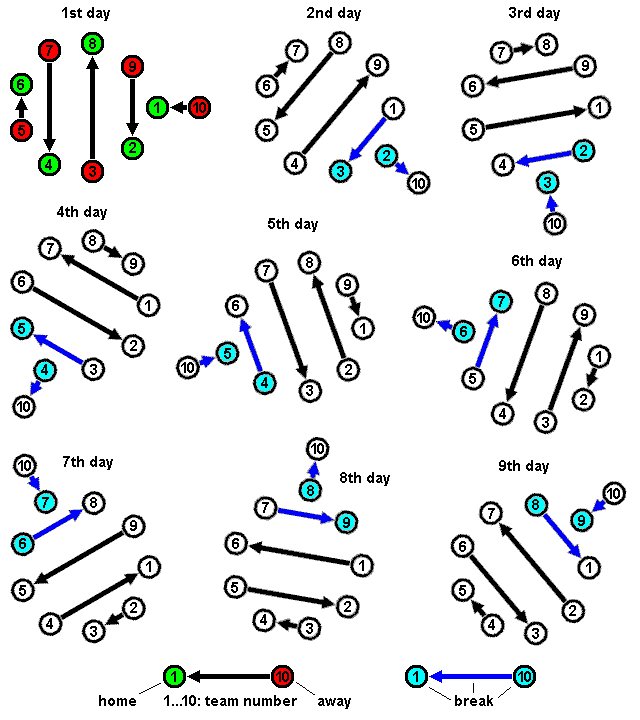|
Maracanazo
The match between Uruguay and hosts Brazil was the decisive match of the final stage at the 1950 FIFA World Cup. The match was played at the Maracanã Stadium in the then-capital of Brazil, Rio de Janeiro, on 16 July 1950. Unlike in other editions of the tournament, which conclude with a one-off final, the 1950 winner was determined by a final group stage, where four teams played in a round-robin format. With Brazil topping the group, one point ahead of Uruguay going into the match, Uruguay needed a win while Brazil needed only to avoid defeat to become the world champions; neither of the other two teams, Spain and Sweden, could finish first. The match is often regarded as the ''de facto'' final of the 1950 World Cup. Uruguay won 2–1; Brazil took the lead shortly after half-time on a goal by Friaça, but Juan Alberto Schiaffino equalised midway through the second half, and Alcides Ghiggia completed the comeback with eleven minutes remaining. A victory of an underdog over a h ... [...More Info...] [...Related Items...] OR: [Wikipedia] [Google] [Baidu] |
Brazil National Football Team
The Brazil national football team ( pt, Seleção Brasileira de Futebol), nicknamed ''Seleção Canarinho'' (‘Canary Squad’, after their bright yellow jersey), represents Brazil in men's international football and is administered by the Brazilian Football Confederation (CBF), the governing body for football in Brazil. They have been a member of FIFA since 1923 and a member of CONMEBOL since 1916. Brazil is the most successful national team in the FIFA World Cup, being crowned winner five times: 1958, 1962, 1970, 1994 and 2002. The ''Seleção'' also has the best overall performance in the World Cup competition, both in proportional and absolute terms, with a record of 76 victories in 114 matches played, 129 goal difference, 247 points, and 19 losses. It is the only national team to have played in all World Cup editions without any absence nor need for playoffs, and the only team to have won the World Cup in four different continents: once in Europe ( 1958 Sweden), ... [...More Info...] [...Related Items...] OR: [Wikipedia] [Google] [Baidu] |
1950 FIFA World Cup
The 1950 FIFA World Cup was the fourth edition of the FIFA World Cup, the quadrennial international football championship for senior men's national teams and held in Brazil from 24 June to 16 July 1950. The planned 1942 and 1946 World Cups were cancelled due to World War II. This tournament ended the hiatus. Uruguay, who had won the inaugural competition in 1930, defeated the host nation, Brazil, in the deciding match of the four-team group of the final round. This was the only tournament not decided by a one-match final. It was also the inaugural tournament where the trophy was referred to as the Jules Rimet Cup, to mark the 25th anniversary of Jules Rimet's presidency of FIFA. Host selection Because of World War II, the World Cup had not been staged since 1938; the planned World Cups of 1942 and 1946 were both cancelled. After the war, FIFA were keen to resurrect the competition as soon as possible, and they began making plans for a World Cup tournament to take place. In ... [...More Info...] [...Related Items...] OR: [Wikipedia] [Google] [Baidu] |
Maracanã Stadium
Maracanã Stadium ( pt, Estádio do Maracanã, standard Brazilian Portuguese: , local pronunciation: ), officially named Estádio Jornalista Mário Filho (), is an association football stadium in Rio de Janeiro, Brazil. The stadium is part of a complex that includes an arena known by the name of ''Maracanãzinho'', which means "The Little Maracanã" in Portuguese. Owned by the Rio de Janeiro state government, the stadium is now managed by the clubs Flamengo and Fluminense. It is located at the Maracanã neighborhood, named after the Rio Maracanã, a now canalized river in Rio de Janeiro. The stadium was opened in 1950 to host the FIFA World Cup, in which Brazil was beaten 2–1 by Uruguay in the deciding game, in front of a still standing record attendance of 173,850 spectators, on 16 July 1950. The venue has seen attendances of 150,000 or more at 26 occasions, the last being on 29 May 1983, as 155,253 spectators watched Flamengo beat Santos, 3–0. The stadium has seen ... [...More Info...] [...Related Items...] OR: [Wikipedia] [Google] [Baidu] |
Uruguay National Football Team
The Uruguay national football team ( es, Selección de fútbol de Uruguay) represents Uruguay in international football, and is controlled by the Uruguayan Football Association, the governing body for football in Uruguay. The Uruguayan team is commonly referred to as ''La Celeste'' (The Sky Blue). Regarded to be one of the greatest footballing nations of all time, Uruguay has won the Copa América 15 times being tied with Argentina for the most titles in the history of the tournament. Uruguay won their most recent title in 2011. Additionally, Uruguay are the holders of four FIFA World Championships: The team has won the FIFA World Cup twice, including the first World Cup in 1930 as hosts, defeating Argentina 4–2 in the final. Their second title came in 1950, upsetting host Brazil 2–1 in the final match, which had the highest attendance for a football match ever. Uruguay has also won gold medals at the Olympic football tournament twice, in 1924 and 1928. The gold medal ... [...More Info...] [...Related Items...] OR: [Wikipedia] [Google] [Baidu] |
Alcides Ghiggia
Alcides Edgardo Ghiggia Pereyra (; 22 December 1926 – 16 July 2015) was a Uruguayan-Italian football player, who played as a right winger. He achieved lasting fame for his decisive role in the final match of the 1950 World Cup, and at the time of his death exactly 65 years later, he was also the last surviving player from that game. Career Ghiggia's family was of Ticinese descent originally from Sonvico. He played for the national sides of both Uruguay and Italy during his career. He also played for Peñarol and Danubio in Uruguay and A.S. Roma and A.C. Milan in Italy. In 1950, Ghiggia, then playing for Uruguay, scored the winning goal against Brazil in the final match of that year's World Cup. Roberto Muylaert compares the black and white film of the goal with Abraham Zapruder's chance images of the assassination of John F. Kennedy in Dallas: he says that the goal and the shot that killed the U.S. president have "the same dramatic pattern ... the same movement .. ... [...More Info...] [...Related Items...] OR: [Wikipedia] [Google] [Baidu] |
Juan Alberto Schiaffino
Juan Alberto "Pepe" Schiaffino Villano (; 28 July 1925 – 13 November 2002) was an Italian-Uruguayan football player who played as an attacking midfielder or forward. A highly skilful and creative playmaker, at club level, he played for CA Peñarol in Uruguay, and for A.C. Milan, and Roma in Italy. At international level, he won the 1950 FIFA World Cup with the Uruguay national team, and also took part at the 1954 FIFA World Cup; he later also represented the Italy national football team. He was ranked as the best Uruguayan footballer of all time by an IFFHS poll, and the 17th greatest player of the twentieth century. Club career Following his eight successful years in Peñarol in his native Uruguayan league, Schiaffino was purchased by Italian Serie A club A.C. Milan, for an at the time world record fee of 52 million Lire, in September 1954. He played 171 games with A.C. Milan and scored 60 goals, and participated in the 1958 European Cup Final, which Milan lost to Real ... [...More Info...] [...Related Items...] OR: [Wikipedia] [Google] [Baidu] |
Bolivia National Football Team
The Bolivia national football team ( es, Selección de fútbol de Bolivia), also known as ''La Verde'', has represented Bolivia in international football since 1926. Organized by the Bolivian Football Federation (FBF), it is one of the ten members of FIFA's South American Football Confederation ( CONMEBOL). After playing in the 1930 and 1950 World Cups, they have qualified just once, in 1994, where they were eliminated in the group stage. Bolivia have never advanced past the first round of any World Cup, and have only scored one goal, in 1994. Despite their World Cup performances, Bolivia won the Copa América at home in 1963, and finished runners-up in 1997, which they also hosted. At the 2015 Copa América in Chile, they advanced to the quarter-finals for the first time since 1997, after defeating Ecuador 3–2. This also ended a winless streak in the Copa América, with their last win being on 28 June 1997, when they defeated Mexico 1–0 in the semi-finals. History B ... [...More Info...] [...Related Items...] OR: [Wikipedia] [Google] [Baidu] |
1950 FIFA World Cup Final Round
The final round of the 1950 FIFA World Cup took place from 9 to 16 July 1950. The final round consisted of Brazil, Spain, Sweden, and Uruguay Uruguay (; ), officially the Oriental Republic of Uruguay ( es, República Oriental del Uruguay), is a country in South America. It shares borders with Argentina to its west and southwest and Brazil to its north and northeast; while bordering .... The winner of the final round was declared champions of the World Cup. Uruguay won the tournament, defeating hosts Brazil in the decisive match for their second World Cup title. Qualified teams The top placed team from each of the four groups qualified for the final round. Standings Matches All times listed are local time. Uruguay vs Spain Brazil vs Sweden Brazil vs Spain Uruguay vs Sweden Sweden vs Spain Uruguay vs Brazil References External links 1950 FIFA World Cup archive {{DEFAULTSORT:Final round 1950 FIFA World Cup Brazil at t ... [...More Info...] [...Related Items...] OR: [Wikipedia] [Google] [Baidu] |
Spain National Football Team
The Spain national football team ( es, Selección Española de Fútbol) has represented Spain in international men's football competitions since 1920. It is governed by the Royal Spanish Football Federation, the governing body for football in Spain. Spain is one of eight national teams to have been crowned world champions, having participated in a total of 16 of 22 FIFA World Cups and qualifying consistently since 1978. Spain also won three continental titles, having appeared at 11 of 16 UEFA European Championships. Spain currently competes in League A of the UEFA Nations League alongside the other top teams of Europe. Their best result was in the 2020–21 season where they reached the final, losing to France. Spain is the only national team to win three consecutive major titles, including two back-to-back European Championships in 2008 and 2012, while becoming the first European team to win a FIFA World Cup held outside of Europe in 2010. From 2008 to 2013, Spain won ... [...More Info...] [...Related Items...] OR: [Wikipedia] [Google] [Baidu] |
Round-robin Tournament
A round-robin tournament (or all-go-away-tournament) is a competition in which each contestant meets every other participant, usually in turn.''Webster's Third New International Dictionary of the English Language, Unabridged'' (1971, G. & C. Merriam Co), p.1980. A round-robin contrasts with an elimination tournament, in which participants/teams are eliminated after a certain number of losses. Terminology The term ''round-robin'' is derived from the French term ''ruban'', meaning "ribbon". Over a long period of time, the term was corrupted and idiomized to ''robin''. In a ''single round-robin'' schedule, each participant plays every other participant once. If each participant plays all others twice, this is frequently called a ''double round-robin''. The term is rarely used when all participants play one another more than twice, and is never used when one participant plays others an unequal number of times (as is the case in almost all of the major United States professional s ... [...More Info...] [...Related Items...] OR: [Wikipedia] [Google] [Baidu] |
1950 FIFA World Cup Group 4
Group 4 of the 1950 FIFA World Cup took place on 2 July 1950. The group consisted of Uruguay, France, and Bolivia. However, France later withdrew from the group. The group winners advanced to the final round A single-elimination, knockout, or sudden death tournament is a type of elimination tournament where the loser of each match-up is immediately eliminated from the tournament. Each winner will play another in the next round, until the final mat .... Standings Matches All times listed are local time. Uruguay vs Bolivia References External links 1950 FIFA World Cup archive {{DEFAULTSORT:Group 4 1950 FIFA World Cup Uruguay at the 1950 FIFA World Cup Bolivia at the 1950 FIFA World Cup ... [...More Info...] [...Related Items...] OR: [Wikipedia] [Google] [Baidu] |
Yugoslavia National Football Team
The Yugoslavia national football team; hr, Jugoslavenska nogometna reprezentacija; sl, Jugoslovanska nogometna reprezentanca; mk, Фудбалска репрезентација на Југославија, Fudbalska reprezentacija na Jugoslavija represented Yugoslavia in international association football. Although the team mainly represented the pre-war Kingdom of Yugoslavia and the post-war SFR Yugoslavia, various iterations of the state were formally constituted in football, including the: * Kingdom of Serbs, Croats and Slovenes (1918–1929) * Kingdom of Yugoslavia (1929–1945) * Democratic Federal Yugoslavia (1945) * Federal People's Republic of Yugoslavia (1945–1963) * Socialist Federal Republic of Yugoslavia (1963–1992) It enjoyed success in international competition, finishing in fourth place at the 1930 and 1962 FIFA World Cups. In 1992, during the Yugoslav wars, the team was suspended from international competition as part of the United Nations sanctions o ... [...More Info...] [...Related Items...] OR: [Wikipedia] [Google] [Baidu] |








